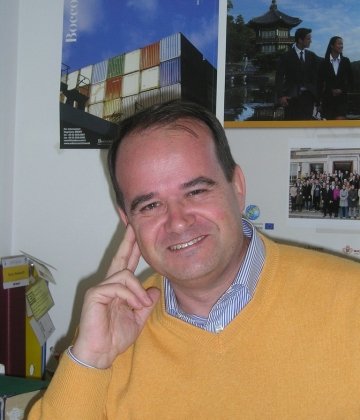Alberto Bramanti

I was born and grew up in Varese, a charming town in the lake district. I've been commuting to Milan since 1977, the year I enrolled at Bocconi and graduated four years later in Economics with our President, Prof. Mario Monti.
I got married (1984) to Emanuela, we have three children and three grandchildren, and I am a grandfather in my spare time.
I like the mountains, hiking and skiing. I am fond of photography, and wherever I go, I take my Canon with me.
I also love art and culture, and as soon as we can, Emanuela and I travel around Italy in search of beauty.
The eight main fields of interest I have spent years on are the following ones:
- Trans-border co-operation;
- Handicraft, analysis and sectoral policies;
- Development models, territorial analysis, districts and milieux;
- Regional policies and policies evaluation;
- Quantitative methodologies;
- Urban and service economics, commerce and tourism;
- Human capital and vocational training;
- ICTs, knowledge economy and creativity.
My most recent research activity focuses on three themes.
- Territorial competitiveness and European cohesion policies (I’m an RSA CPNetwork member on these issues). https://www.regionalstudies.org/network/eu-cohesion-policy-cpnet/
- Urban areas and territorial capital (this approach is one way to study urban areas’ competitiveness, all the most exciting in these post-COVID times).
- Macro regions, cross-border areas and the Alpine economy (the Alps are a magnetic observatory in times of green transition. Preserving their sustainability – by moving away from tourism monocultures – is challenging for these territories).
La construction du capital territorial dans les espaces-frontières : problématique, typologie
REVUE D'ÉCONOMIE RÉGIONALE ET URBAINE, N. 1, pp. 71-89, 2020Structure and performance of the Italian alpine “core”: a counterfactual analysis
WORLDWIDE HOSPITALITY AND TOURISM THEMES, Vol. 12, No. 4, pp. 387-407, 2020New manufacturing trends in developed regions
Diversities of innovation, The Role of Government Policies for the Future Economic Basis of Societies, Routledge, Taylor & Francis, London, pp. 239-274, 2019Smart timing and specialised spaces: reflections on the implementation of smart specialisation strategies in Milan and Brussels
PUBLIC POLICY PORTUGUESE JOURNAL, Vol. 3, N. 1, pp. 44-56, 2018EUSALP and the challenge of multi-level governance policies in the Alps
WORLDWIDE HOSPITALITY AND TOURISM THEMES, Vol. 10, No. 2, pp. 140-160, 2018EUSALP and its interconnectedness with the Alpine space
Making the Most of Macro-Regions. Trends, Analysis, Recommendations, pp. 46-53, 2017Innovation policies deserve a sound monitoring system. An agenda for policy makers
Routledge handbook of politics and technology, Routledge, Taylor & Francis, London, pp. 411-424, 2015Clusters, unlike diamonds, are not forever: the European way to global competition
Routledge handbook of politics and technology, Routledge, Taylor & Francis, London, pp. 354-366, 2015Scaling up and Policy Making
Experiences with a Novel Approach to Preventing Violence and Implementing Inclusive Education. Erasmus+ Programme, European Union, Bruxelles, pp. 87-110Elective Course 20555
My elective Course, “Cities and Regions. Managing Growth and Change”, is offered to all the students attending the second year of Master Degree (I semester).
20555 is divided into five logical blocks (Cities, Regions, Innovation, and Labour, plus Composite Indicators). The Course offers an original view to a ‘glocal’ perspective on competitiveness and growth where territories matter and place-based policies exert a proactive role in strengthening sustainability and wellbeing.